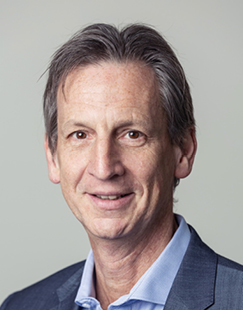19 octobre 2023: Pr Nigel Curtis
12H30
CMU - AUDITOIRE MÜLLER (A250)
suivi d'un apéritif
Hôte: Pr Arnaud DIDIERLAURENT
Département de pathologie et immunologie, Faculté de médecine UNIGE
Prof. Nigel Curtis
Head of Infectious Diseases Unit, The Royal Children’s Hospital Melbourne
Professor of Paediatric Infectious Diseases, Department of Paediatrics, University of Melbourne
Leader of the Infectious Diseases Research Group, Murdoch Children’s Research Institute

«Accidental Advantages and Unintended Consequences of Vaccines»
Vaccines have played a pivotal role in combating infectious diseases. Although conventionally designed to provide targeted immunity against specific pathogens, a growing body of research suggests that vaccines may also have off-target (‘non-specific’) effects that extend beyond the intended pathogen. These effects can manifest in a variety of ways, impacting the immune system's response to other pathogens, both viral and bacterial, as well as autoimmune diseases.
The Bacillus Calmette-Guérin (BCG) vaccine, originally developed for tuberculosis, is a prime example. The immunomodulatory off-target effects of this vaccine provide broader protection associated with reduced all-cause infant mortality in high-risk settings. Similarly, the measles vaccine has demonstrated benefits in reducing all-cause mortality, indicating broader immunological effects.
Several theories have been proposed to explain the immunological mechanisms underlying these non-specific effects. One key hypothesis is trained immunity, the concept that exposure to stimuli such as BCG primes the innate immune system to respond more effectively to subsequent challenge with unrelated pathogens.
In his talk, Prof Curtis will explore the accidental advantages, as well as potential disadvantages, of vaccines. Drawing from his clinical trials and laboratory research, he will provide an overview of the recent advancements in this rapidly evolving field, which presents promising opportunities for designing more effective vaccines.
Biography
Professor Curtis did his undergraduate medical degree at the University of Cambridge and clinical training at St Mary's Hospital Medical School, University of London. He did laboratory training at Imperial College London, where he completed a PhD investigating the role of bacterial superantigen toxins in Kawasaki disease and toxic shock syndrome. His specialist training in infectious diseases included working at Great Ormond Street Hospital for Sick Children in London and a Fellowship at the British Columbia Children's Hospital in Vancouver. He has also worked for periods in The Gambia, Zimbabwe and South Africa.
His research on the diagnosis, treatment and prevention of infectious diseases in children combines clinical research and trials with laboratory immunology studies. His multidisciplinary research team currently works on the immunodiagnosis of childhood TB (or not TB), the innate and cellular immune response to BCG vaccine to understand both its specific and off-target effects, and a wide range of clinical projects.
He has led numerous trials including the MIS BAIR randomised controlled trial of neonatal BCG vaccination for protection against infections, allergic disease and asthma. He also led the BRACE randomised controlled trial of BCG vaccination to reduce the impact of COVID-19 in healthcare workers.
Professor Curtis has published more than 400 papers and is the recipient of an Australian NHMRC Investigator Award. He was awarded the European Society for Paediatric Infectious Diseases (ESPID) Bill Marshall Award in 2022.
19 oct. 2023